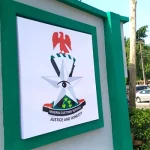
As rumors continue to spread about the hike in telecommunication service tariffs, the federal government appears to have not entirely dismissed the push by operators in Nigeria.
Recall that, Earlier this year, the call for tariff increases sparked significant debate, particularly concerning the sustainability of the country’s $76 billion telecoms industry.
But then, the Minister of Communications, Innovation and Digital Economy, Dr Bosun Tijani, did not give a nod to the call. Instead, he challenged the industry to be more innovative in its business approach to remain afloat. Rather than for the tariff hike calls to wane, it was intensified, with players stressing that if not affected, the industry may collapse after operators continued to declare significant losses in their operations.
As it is, if the minister’s body language is anything to go by, telecoms operators might soon get the nod to increase tariffs, albeit marginally. Tijani had, during a television programme at the weekend, hinted at sustaining the sector come 2025, stressing that everything that needed to be done to keep the industry afloat would be explored.
“We have conducted a study on the Sustainability of the telecoms sector. The result should be out in about two weeks. This will reveal what we need to do to ensure we can support operators more for improved services.
“Beyond just the conversation, which is out there, which is about increasing the tariff, Yes, we think there may be a need for the hike, but lots more need to be done as a country to ensure that the sector is competitive and beyond just supporting them to be competitive, the government must support be investing in digital infrastructure as well,” the minister stated.
Last week, the Chief Executive Officer of 9mobile, Obafemi Banigbe, also joined the call for a tariff hike for telecom services. He said the industry has been badly hit by the current naira devaluation, which has caused major telecom operators to declare significant losses since last year’s quarter.
Banigbe said all the costs incurred by operators in the country have increased significantly, jumping by almost three times. He stressed that towercos alone increased their prices by over 300 per cent, “this is an outside hike in diesel cost, insecurity, vandalism, maintenance of sites, infrastructure upgrades, among others.
“The only way to survive is to increase tariffs; even government (Customs) charges have increased. What they charge us has increased tremendously. We need to act fast to keep the sector going. The industry must get free market opportunities to increase tariffs on services.”
In August, the CEO of MTN, Karl Toriola, likened the industry to a patient in intensive care, noting the urgent need for intervention to prevent its collapse.
Again, in October, Toriola, reiterated the need for the telecommunications sector to return to profitability to sustain its operations. He said: “There should be no delusion; if the tariff doesn’t go up, we will shut down.” He added that the telco has survived by spending its savings and that the industry is living on borrowed time.
“MTN and the entire industry are in a dire situation. MTN is loss-making because of the naira devaluation. The fundamentals need to change. Tariffs have to be changed,” he said.
Toriola stated that the telecoms company was once one of the most significant contributors of corporate income tax to the Federal Inland Revenue Service (FIRS). However, this contribution has been reduced to zero as the company has stopped making profits.
As a result of the sector’s challenges, the operators had considered a load-shedding strategy similar to that used in the power sector to manage their services in August.
Read also:FG commends NCS for generating N5tr in 2024
According to Chairman of the Association of Licensed Telecoms Operators of Nigeria (ALTON), Gbenga Adebayo, the economic challenges have severely affected telecoms companies, potentially hindering their ability to service all facilities simultaneously.
In 2024, MTN Nigeria reported a N519.1 billion loss in the year’s first half due to foreign exchange losses from the naira’s devaluation and high inflation rates.
Also, Airtel Africa’s financial statement for the fiscal year ending March 31, 2024, detailed a $89 million loss after tax, which was impacted by the Naira’s instability, as well as $770 million in FX losses due to the Naira’s devaluation.
Justifying the need for tariff hikes in the sector, the National Association of Telecommunications Subscribers (NATCOMS) said the last increase was done about 11 years ago, stressing that prices of goods and services have significantly gone up, leaving only the telecoms sector.
NATCOMS urged the Nigerian Communications Commission (NCC) to approve a marginal 10 per cent tariff increase for telecoms companies to alleviate the rising operational costs in the sector.
National President of NATCOMS, Adeolu Ogunbanjo, said that the tariff hike is necessary for telecom companies to sustain their operations and improve service quality. He emphasised that the current economic conditions are severely impacting telecom operators, making it crucial for stakeholders to find a balanced solution.
Guardian.









